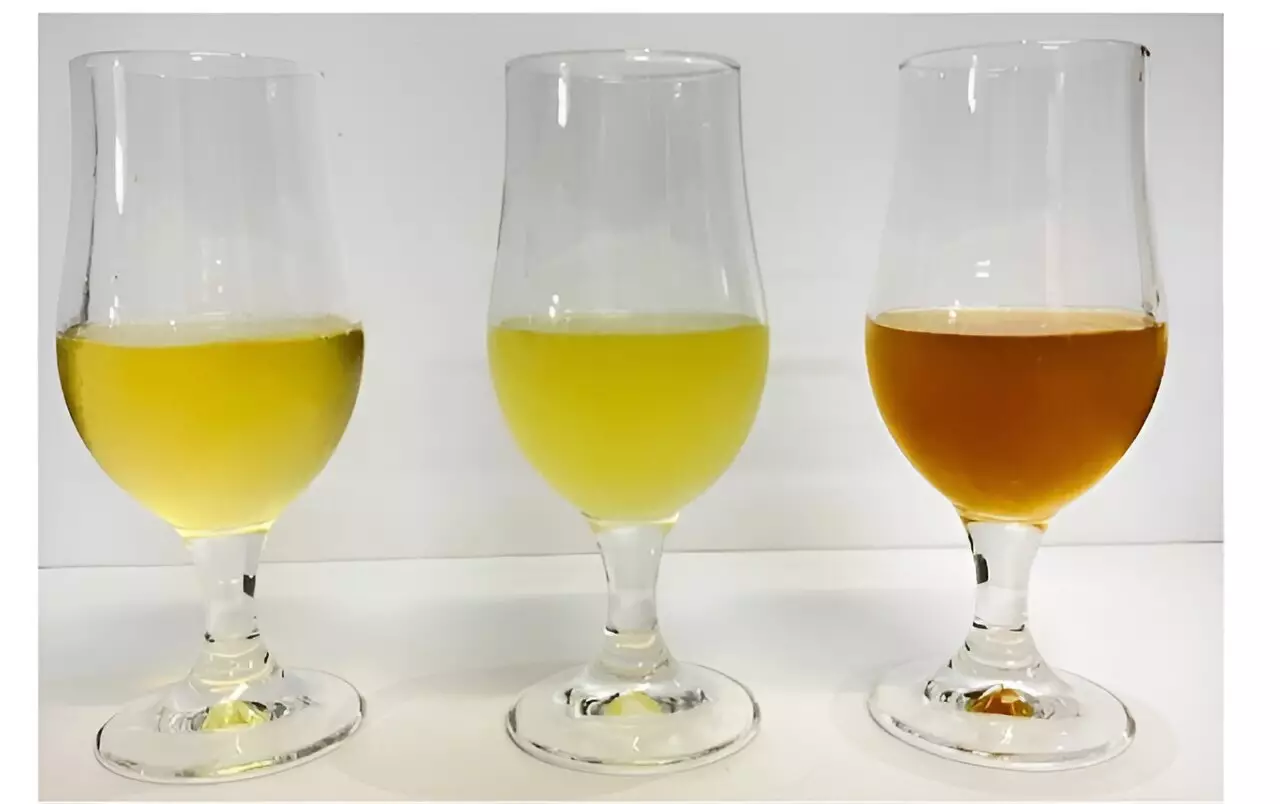Kombucha, a beloved beverage in health circles, has established its niche as a tangy and effervescent drink made primarily from fermented tea. However, the beverage landscape is evolving as brewers venture beyond traditional ingredients. Recent studies indicate a growing interest in fermenting other plant-based liquids, unlocking not only diverse flavors but also varying nutritional profiles. This trend may reshape our understanding of health-promoting beverages, with one study shedding light on apple and passion fruit juices as promising kombucha alternatives.
Published in *ACS Agricultural Science & Technology*, researchers investigated the biochemical and sensory properties of kombucha compared to beverages made from apple and passion fruit juices. The study’s outcomes were illuminating. Notably, the apple-based drink was identified as having exceptionally high levels of flavonoids—antioxidant compounds linked to numerous health benefits. Taste tests revealed that the apple beverage not only excelled chemically but also earned high marks from participants, reinforcing its potential viability as a substitute for traditional kombucha.
Fermentation, wherein sweetened tea is combined with a SCOBY (symbiotic culture of bacteria and yeast), results in a healthful drink replete with beneficial microorganisms as well as bioactive compounds such as flavonoids and phenolics. However, scant research has explored alternative liquids for fermentation, prompting scientists like Socorro Vanesca and Frota Gaban to delve into the possibilities beyond tea.
The methodology employed by the researchers involved fermenting apple juice, passion fruit juice, and tea for ten days under ambient conditions. Upon completion, various bioactive compounds were analyzed. The apple beverage emerged as a clear winner, boasting the highest flavonoid concentrations, while kombucha and passion fruit drinks displayed comparable levels of phenolic compounds. Interestingly, all three beverages had similar amounts of anthocyanin, indicating that antioxidant benefits may be gained from diverse fermentation sources.
Taste testers engaged with each beverage, noting distinct characteristics such as color and aesthetic appeal. The apple beverage was marked by an amber hue, contrasting with the yellow of the passion fruit and the gold of kombucha. Aroma evaluations further differentiated the drinks, with the fruit juices exuding more intense and fruity scents compared to the more subdued aroma of the tea-based brew.
Given these findings, it appears evident that fermented apple juice not only offers substantial bioactive compounds but also provides a pleasing flavor profile that could appeal to a wider audience. The research team behind this study is enthused by the potential of exploring additional fruits for fermentation, aiming to create innovative beverages that challenge the kombucha status quo.
As the fermented beverage market continues to expand, consumers may soon find alternatives that not only rival the traditional kombucha but also introduce new tastes and health benefits. This exploration of diverse ingredients signifies a promising future for health-conscious and adventurous drinkers alike.


Leave a Reply